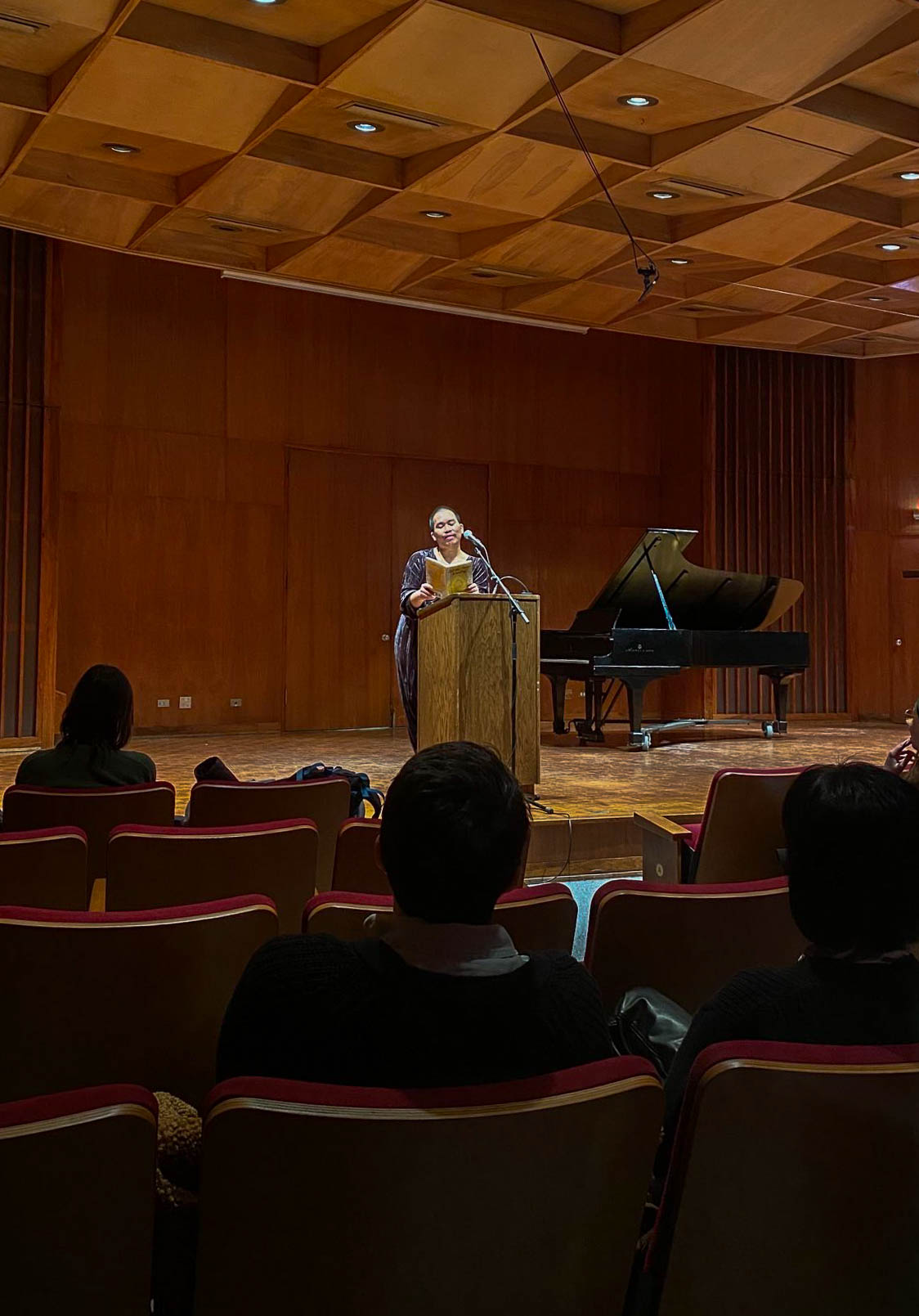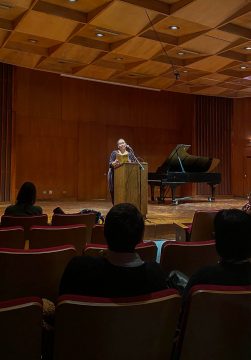On Jan. 18, Lawrence University had the privilege of hosting a poetry reading by the poet Paul Tran in Harper Hall. Paul Tran is the author of the debut poetry collection “All the Flowers Kneeling” and is an Assistant Professor of English and Asian American Studies at the University of Wisconsin–Madison. Among other publications, their work has appeared in the New York Times, the New Yorker and “Best American Poetry.”
Prior to the start of the reading, the audience was treated to a beautiful rendition of “Fantasy” by Hélène de Montgeroult, performed by pianist Helen Panshin, a junior and double-major in music and English literature. The piece set a lovely, melancholic mood for Harper Hall and only helped raise my excitement for the poetry to come. I personally hope that all future readings I attend are preceded by a musical performance as excellent as this one.
Once the final notes of “Fantasy” had faded from the air, one of Lawrence’s own published poets, Assistant Professor of English Austin Segrest, took the stage to introduce the night’s poet. He described Tran’s poetry as poetically as the collection itself: “In their hands, the English language always already encodes the psychology of survival […] It’s all there, ingrained in the paradox of a homonym like ‘heal’ and ‘heel,’ begging the question: how can you h-e-a-l when you’ve been conditioned to h-e-e-l.”
He continued, explaining how, in teaching this book, he came to some personal realizations. “I realized how much Tran’s survivor poetics have influenced my own thinking and writing about survival. They are the guide we have been looking for.”
Tran opened boldly with “Lipstick Elegy,” their voice clear and movements dynamic, immediately capturing the audience’s attention. It wasn’t until after this first initial poem that Tran greeted the crowd, breaking the serious mood set by everything that had preceded it. They thanked everyone for braving the cold and for “giving this girl an excuse to go to Target and get an outfit.” It became abundantly clear that the audience was in for a night of powerful poetry and hilarious interludes.
Despite the fun and upbeat energy that Tran brought to the stage, they didn’t back down from the seriousness of what they had come to perform. Their book was 10 years in the making, from the time they were raped their junior year in college, when they then had to go back to their childhood and years between of trauma and abuse, and the trauma and abuse that stretched back into their heritage as well.
Transitioning back into their poetry, they explained that for their poems to feel truly honest to them, they had to address certain feelings that came with the healing process. They had to address the fact that sometimes they wanted to stop healing and simply be a “bad survivor.” They read “Galileo” from their collection.
Afterward, they talked about how in times where they felt truly alone, they realized they were never really alone. They could go back into time and history to find people like them who had already done the work of surviving and had made it through. Their next two poems, “Judith Slaying Holofernes: Oil on Canvas: Artemisia Gentileschi: 1620” and “Scheherazade/Scheherazade” really encapsulated this continuity of survival throughout history.
“Bioluminescence” was Tran’s final poem of the night, and—to bring our spirits back to light after some heavy but beautiful poems leading up to it—they gave us the story behind the poem. In teaching a creative writing workshop, Tran’s class of 12 Scorpio poets challenged them to write a poem based on the next movie they watched. It just so happened to be “Finding Nemo.” What may have seemed like such a silly request with such a mundane topic turned into so much more in Tran’s hands and became an allegory for people who have spent so much time in the darkness that they’ve had to become their own light and their own source of illumination.
By the end of their reading, it was abundantly clear why their collection had been named a Best Book of 2022 by the New Yorker. The poems were heavy. They were uplifting. They were, truly, about love from every angle of the word.
One of the best things to say about this book is what Tran themself said of it. “I see this book as a love letter to the women in my family, as a love letter to my mother, as a love letter to immigrants and refugees who crossed oceans to do the impossible thing of trying to find a better life. It’s a love letter to queer and trans people of color who, every day, do the impossible thing by trying to imagine new lives for ourselves, new bodies, new names, new futures.”
After the show, I was able to talk with them briefly while they were signing books. I asked them what their advice to people wanting to share their stories and their voices would be.
“Invent your own game,” they said. “Play by your own rules. Don’t let anyone judge you, and if they do, tell them what you’re worth. Tell them how deserving and incredible and brilliant you are. Because you already had to be to get here.”
Paul Tran’s debut collection “All the Flowers Kneeling” (2022) can be found at your independent bookseller (or on Amazon).


